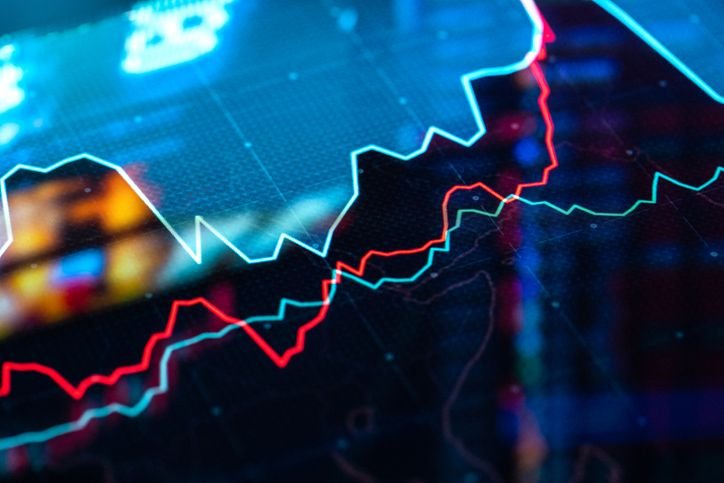Financial markets around the world have plummeted in the days since President Trump announced sweeping tariffs, setting off a global trade war. The S&P 500 declined more than 10 percent in two days last week.
It swung wildly on Monday amid news of further tariffs and rumors of delays, and ended lower again on Tuesday after another chaotic day of trading. Stock indexes in Asia and Europe have fallen sharply as well.
Experts often caution that the stock market can be a misleading measure of the broader economy. Share prices can move for a host of reasons — technological developments, shifts in consumer preferences, changes in tax or interest rate policy.
Sometimes, though, the markets carry an economic message — and in recent days, they have been speaking unusually clearly. Investors overwhelmingly believe that Mr. Trump’s tariffs, and retaliation from U.S. trading partners, will lead to higher prices, slower growth and possibly a global recession.
Spending Hit as Portfolios Shrink
Plunging stock prices may not just reflect fears of a recession. They may also help cause one, as consumers pull back spending in response to their portfolios’ evaporating value.
“A few days of turmoil might not matter much,” said Ryan Sweet, chief U.S. economist at Oxford Economics, a forecasting firm, “but if the drop in the stock market persists for a few weeks, a couple months, the economic costs begin to quickly mount.”
The direct effects of tariffs will fall hardest on low- and moderate-income consumers, who tend to spend more of their money on food, clothing and other goods subject to duties, and who have less savings to insulate them from higher prices.
But market declines will be felt most acutely by higher earners, who own a disproportionate share of stocks and other investments.
Those wealthier households have played a crucial role in propping up consumer spending in recent years, as lower-income households have been squeezed by rising prices, high interest rates and slowing wage growth. Now higher earners, too, could become more cautious as their investments lose value.
“A friend stopped by my office today and said, ‘Well, I won’t be redoing my kitchen because my entire kitchen budget was wiped out in the stock market in the past three days,’” said Tara Sinclair, an economist at George Washington University.

The Wealth Effect: A Multiplier of Market Losses
Affluent households won’t be the only ones affected by tumbling stock prices. A majority of Americans own stocks either directly or through retirement accounts. And the segment owning shares of individual companies has risen in recent years, partly because of the meme-stock investing boom that began during the pandemic.
Mr. Sweet estimates that the “wealth effect” — the amount that households, in the aggregate, increase or decrease their spending in response to stock market changes — is four times what it was before the pandemic. That makes the economy more vulnerable to market declines.
“It’s hundreds of billions of dollars in potentially lost spending,” he said.
A decline in spending of that magnitude would ripple through the entire $30 trillion U.S. economy. Businesses have already grown more cautious about hiring and investment amid the uncertainty over tariffs and other policies. They have mostly resisted cutting jobs, but that could change quickly if sales begin to decline.
“That’s your transmission mechanism for a recession,” said Michael Gapen, chief U.S. economist for Morgan Stanley. “Weaker demand among higher-income households, and then businesses may engage in layoffs, and typically those layoffs hit lower- and moderate-income households again.”
Broad Market Losses Reflect Deepening Concern
The recent market moves suggest those fears are mounting. Shares of technology companies, automakers and other companies with global supply chains have suffered some of the biggest declines. But the losses haven’t been limited to companies most directly affected by tariffs. Shares of airlines, hotel operators and other companies that offer services to consumers with disposable incomes have also fallen.
“What we’re seeing is that it’s hitting big companies, it’s hitting small companies, it’s hitting everyone,” Ms. Sinclair said.
Oil prices, too, have fallen sharply. That suggests investors think economic activity — including travel, shipping and infrastructure investment — is likely to weaken, not just in the United States but worldwide. Indeed, other countries may be hit harder because exports make up a larger share of their economies.
“The rest of the world is much more levered to global trade than we are,” Mr. Gapen said. “It’s not a great recipe for global growth. It may even be more likely that you get a global recession than a U.S. recession.”
Policy Uncertainty Adds to Economic Strain
Many investors remain optimistic that Mr. Trump will reconsider his tariff plans before they lead to widespread layoffs or business failures. But even if he does, it isn’t clear whether the damage can be fully undone — partly because, after weeks of policy reversals, corporate leaders may not be confident that the tariff threat is fully behind them.
“Businesses have just an enormous number of questions and not many answers, and when that’s the situation they’re probably most comfortable taking shelter in the bunker,” Mr. Sweet said. “They pull back on hiring, and they pull back on investment in structures and equipment and software.”
Texas Teen Orchestrates Family Massacre to Be With Boyfriend




